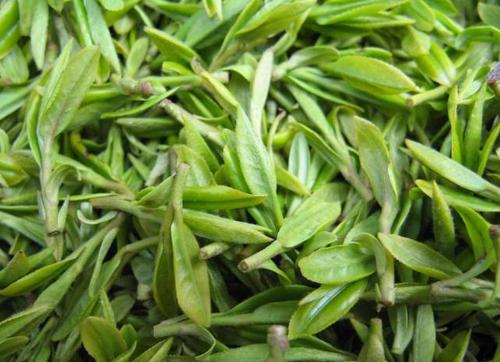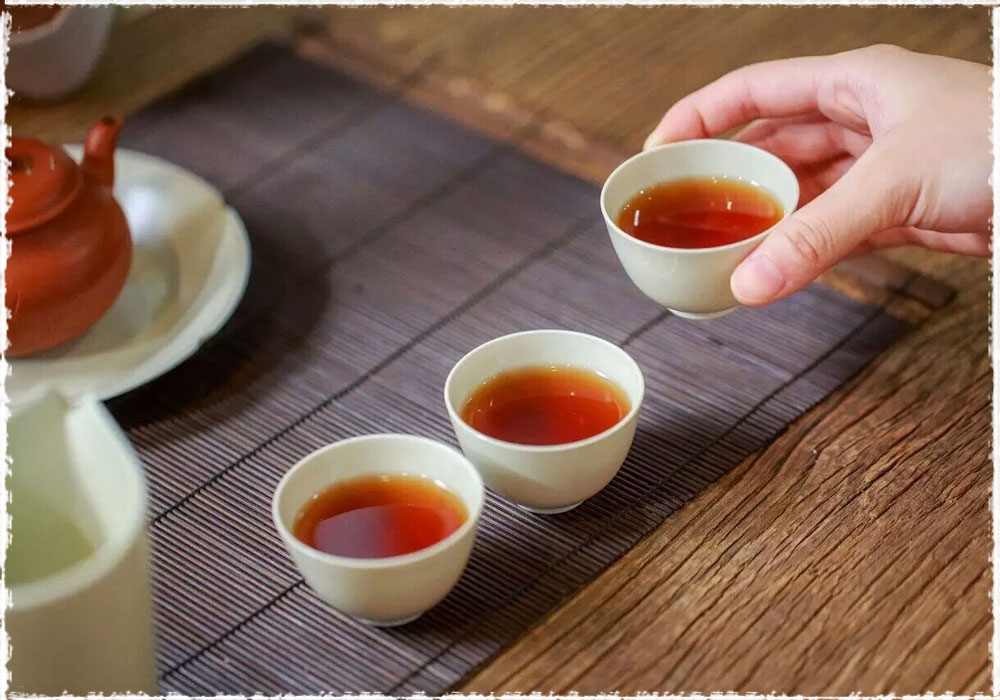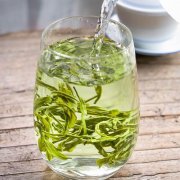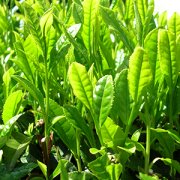What is the ranking of the top ten famous teas in China? where do the three common black teas come from?
China has a history of more than 5000 years, and the history of tea can be traced back to 5000 years ago. The origin of tea drinking is not really known, and the origin of tea culture in China began according to folklore in 2737 BC when the second emperor of China, Shennong, studied plants and herbs when the leaves of camellias in the courtyard were thrown into his pot of boiling water. At this time, tea is mainly regarded as a drink.
By the Zhou Dynasty (1046-256 BC), the refreshing function of tea gradually replaced its medicinal function. People began to dry the tea leaves to preserve them. When they make tea, they put the tea into the pot to make a thick soup. The princes of the Zhou Dynasty were used to drinking this thick soup, but because of its bitter taste, it did not become popular.
In the Han Dynasty (206 BC-220 AD), the collection and processing of wild tea were improved. Tea has become a delicious drink and is very popular among aristocrats. During the Wei and Jin dynasties (220-265), tea became a drink at banquets and contributed to philosophical and metaphysical discussions. People began to like the "freshness and purity" of tea rather than the "violence and intoxication" of wine.

Interestingly, however, for centuries, Chinese people did not like black tea. Although it is well known that tea trees are native to China, black tea is often regarded as imported from foreign countries. Perhaps the best illustration of this point is that China, a country with a history of drinking tea for more than 2000 years, had the Chinese name "black tea" less than 200 years ago. The expression in English is "Black Tea", which literally means "black tea" in Chinese.
The types of Chinese tea
There are mainly six kinds of tea produced in China: green tea, black tea, oolong tea, black tea and white tea, which are mainly different from different production methods. Folklore associates each kind of tea with certain characteristics of human beings.
Therefore, people say that green tea, simple and light, represents the scholastic philosophy of southern China; black tea, light and implicit, quite ladylike; oolong tea, warm and persistent, symbolizing the perseverance of philosophers; black tea, with a long aftertaste, symbolizing the wisdom of the elderly, and so on.
Although the tea drinking ceremony is very popular in Japan, it actually originated in China. The process of brewing, smelling and tasting tea combines the philosophical ideas of Taoism, Confucianism and Buddhism, encouraging people to explore their own spiritual world and provide refreshments.
In addition, different regions of China have developed their own unique tea drinking customs. For example, people in Guangdong like to drink morning tea, people in Fujian like to drink Kungfu Tea, people in Hunan like to drink thunder tea, people in Sichuan like to drink "covered bowl tea", and Bai people entertain guests with "three-way tea". Tibetans like buttered tea and Inner Mongolians like milk tea. These rich and colorful tea customs constitute the breadth and depth of Chinese tea culture.

Tea has been an integral part of Chinese culture for thousands of years; it was popular before the Egyptians built the Great Pyramid and traded with Asian countries even before Europe left the Dark Ages.
The importance and popularity of tea in China continues to modern times and has become a symbol of the country's history, religion and culture. Basilur salutes this tradition and culture through tea legends-the Chinese Empire and our special Chinese milk oolong tea.
Important Notice :
前街咖啡 FrontStreet Coffee has moved to new addredd:
FrontStreet Coffee Address: 315,Donghua East Road,GuangZhou
Tel:020 38364473
- Prev

What kind of tea can you drink to lose weight black tea has the effect of scraping oil to lose weight? is it okay to eat greasy and drink black tea?
As we now spend more time at home, tea time becomes the best part of the day and re-establish relationships with your loved ones. But did you know that tea is also very good for your health? Historically, tea was originally a medicine and later became a drink. Modern research on the history of tea drinking in the world confirms that tea is not first drunk for entertainment, nor is it for entertainment.
- Next

What's the difference between green tea and fried tea? which is better than Japanese Green Tea's nutritional efficacy and function?
What is fried tea? When we think of green tea, we only think of simple green tea! However, many people do not know that there are different kinds of green tea. These include matcha, gunpowder and fried tea, which you may already know. What makes these green teas different from each other is the growth of plants, the production and processing of tea. Now, we're going to talk about the most watched kind of tea, not every.
Related
- What is the difference between Indonesian Sumatra Mantinin coffee and gold Mantinin? How to distinguish between real and fake golden Mantelin coffee?
- What does bypass mean in coffee? Why can hand-brewed coffee and water make it better?
- Unexpected! Ruixing Telunsu lattes use a smoothie machine to foam milk?!
- % Arabia's first store in Henan opens into the village?! Netizen: Thought it was P's
- Does an authentic standard mocha coffee recipe use chocolate sauce or powder? Mocha Latte/Dirty Coffee/Salty Mocha Coffee Recipe Share!
- What is the difference between Vietnam egg coffee and Norway egg coffee? Hand-brewed single product coffee filter paper filter cloth filter flat solution!
- What is the difference between sun-cured and honey-treated coffee? What are the differences in the flavor characteristics of sun-honey coffee?
- How to make Italian latte! How much milk does a standard latte use/what should the ratio of coffee to milk be?
- How to make butter American/butter latte/butter Dirty coffee? Is hand-brewed coffee good with butter?
- Is Dirty the cold version of Australian White? What is the difference between dirty coffee/decent coffee and Australian white espresso?

